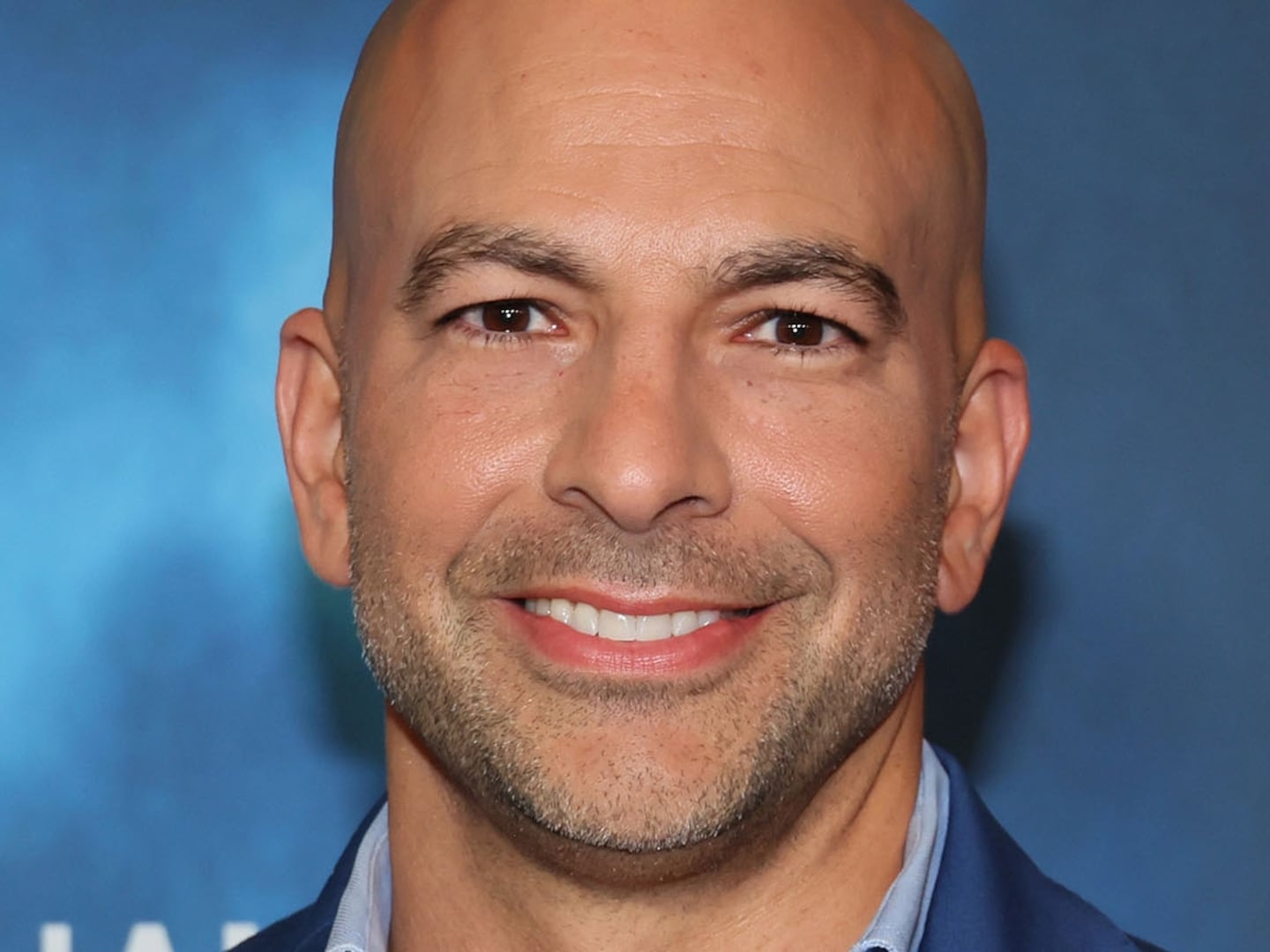The largest employer in the country will not accept people living with HIV.
No, not Walmart, which is the largest private employer in the United States, but the United States military, which has long banned anyone who tests positive for HIV from enlisting—and which considers most current service members diagnosed with HIV to be non-deployable overseas.
In a May lawsuit that has now been allowed to move forward by a federal judge, LGBT advocates with Lambda Legal and OutServe-SLDN are challenging those policies, arguing that they constitute a violation of the Equal Protection Clause in a first-of-its-kind constitutional challenge.
“The military is really the only employer in the United States that’s still allowed to do this,” Scott A. Schoettes, HIV project director at the advocacy group Lambda Legal, told The Daily Beast. “Everybody else you can hold accountable. You can sue under statutory protections for people living with HIV.”
But because the military is not a private employer, Schoettes says, changing the policy via the courts will require arguing that people living with HIV constitute a group that is receiving unequal treatment within the military.
As Bloomberg noted, a federal judge last Friday turned down the Trump administration’s request to dismiss the lawsuit outright.
The lawsuit is especially urgent, LGBT advocates say, in light of a new and unrelated military policy introduced in February 2018.
Known colloquially as “Deploy or Get Out,” the new February 2018 policy states that any soldier who has been deemed non-deployable for over a year should be discharged, as the Military Times reported.
For service members living with HIV, who are considered non-deployable under the longstanding HIV policies, that could mean getting out of the military—and not by choice.
But now that the case is proceeding, those military policies on HIV—first developed in the late 1980s and early 1990s near the height of the AIDS crisis—will come under modern scrutiny.
Those policies, says Schoettes, are “rooted in very outdated ideas about HIV.”
As Lambda Legal and OutServe-SLDN note in one of their complaints [PDF], “scientific innovation and medical advances have radically changed the landscape of HIV treatment and prevention” since the start of the AIDS crisis.
People living with HIV can now manage the virus through anti-retroviral therapy, as Schoettes observes, with “one pill a day”—and, indeed, the U.S. Department of Veterans Affairs website maintains a list of all the once-a-day combination pills that are available.
Those who are on treatment not only effectively suppress the virus to the point that it is undetectable, they are also virtually incapable of transmitting the virus.
As the Centers for Disease Control and Prevention notes, anyone with HIV who can “take HIV medicine as prescribed and get and keep an undetectable viral load” will have “effectively no risk of transmitting HIV to their HIV-negative sexual partners.”
Those advances have all taken place over the last two decades, but public awareness hasn’t fully caught up. (Schoettes told The Daily Beast that reporters outside of the LGBT space have been “blown away by the information in our complaint about treatment today,” specifically the existence of the preventative medication PrEP.) And old fears about soldiers contracting HIV on the battlefield still persist.
“This is where I think a lot of this rests,” Schoettes told The Daily Beast, “is on this idea of transmission risk. Whatever minimal transmission risk may have existed from battlefield transmissions—there’s never been a documented transmission on a battlefield or in similar circumstances—has now been essentially eliminated by treatment.”
In a statement to the Daily Beast, Department of Defense spokesperson Jessica Maxwell said that HIV-positive service members who receive a diagnosis after they have already been enlisted “are referred for medical evaluation of fitness for continued service in the same manner as other service members with chronic or progressive illnesses.”
Maxwell further said that some of these service members “have been granted waivers to deploy under certain circumstances” but also acknowledged that those “who are determined to be unfit for further duty” do indeed “undergo separation or retirement.”
“Service members with HIV may continue their service as long as they are able to perform their military duties, taking into account the nature of their position,” she said.
That varying field of possible outcomes—anywhere between being kicked out, deployed on a special waiver, or allowed to remain in the service but only in certain positions—has left the plaintiffs in the various legal challenges against the military's HIV policies uncertain about their future, they say.
Sergeant Nick Harrison, one of the plaintiffs in the combined Lambda Legal and OutServe-SLDN lawsuit, was diagnosed with HIV during his service in the Army but cannot be commissioned as an officer without a special medical waiver, which he was denied.
For John Voe, a pseudonymous plaintiff, serving as an officer in the Air Force is out of reach—even though, as his complaint noted, he had been found “medically fit for duty” several times since the HIV diagnosis he received at the Academy [PDF].
“I look forward to the day that I can serve my country to the full extent of my abilities, based on my performance and unfettered by unfounded fears and misperceptions about HIV,” said Sgt. Harrison in a press release.
The recent introduction of the February 2018 “Deploy or Get Out” policy means that service members like Harrison aren’t just worried about missing opportunities for promotion; they could also be kicked out of the armed forces altogether.
Lambda Legal and OutServe-SLDN are not challenging “Deploy or Get Out”—a nickname that Maxwell said “is not recognized or used by [the Department of Defense]”—nor do they believe that it was specifically intended to weed out service members with HIV.
As Maxwell noted in her statement, “This is a policy of general applicability and is not aimed at members of any particular group or medical condition.”
However, combined with the specific policies on service members living with HIV, “Deploy or Get Out” could push HIV-positive people out of the military on a wider scale. If the Pentagon didn’t consider that side effect before they introduced the February 2018 policy, says OutServe-SLDN, they certainly know about it now.
“We don’t have any evidence to suggest that [“Deploy or Get Out”] was targeting service members living with HIV,” Peter E. Perkowski, Legal Director for OutServe-SLDN, told The Daily Beast. “But the DoD is now well aware of the consequences of the policy on service members living with HIV.”
For Perkowski, the case is important because it prevents an opportunity to respond to government policies that are “clearly outdated and not reflecting the current state of HIV medical science.”
In particular, the risk of “battlefield blood transmission,” is something that “experts say simply won’t happen,” Perkowski told The Daily Beast.
The CDC notes on its website that the risk of transmitting HIV via “biting,” “spitting,” “throwing body fluids (including semen or saliva) is “negligible,” which means that it is “technically possible but unlikely and not well documented.”
Combine that already low risk with the modern treatments that are available to service members, rendering them undetectable, and the risk of transmission would be, well, somewhere below “negligible.” And HIV-positive service members do indeed receive anti-retroviral therapy.
“Service members who acquire HIV after joining the military receive access to appropriate medical care,” Maxwell noted in her statement. “DoD policy requires that they receive counseling and treatment consistent with established standards of care, evidence-based HIV clinical practice standards, and medical management guidelines.”
But if that’s the case, LGBT advocates argue, then those service members should be permitted to do anything that any other soldier would be allowed to do.
“There is not a job in the world that a person living with HIV could not safely perform,” said Schoettes. “And if we could wrap our heads around that, we would go a long way toward reducing the stigma and maybe eliminating the discrimination against people living with HIV.”






